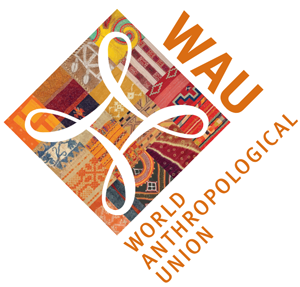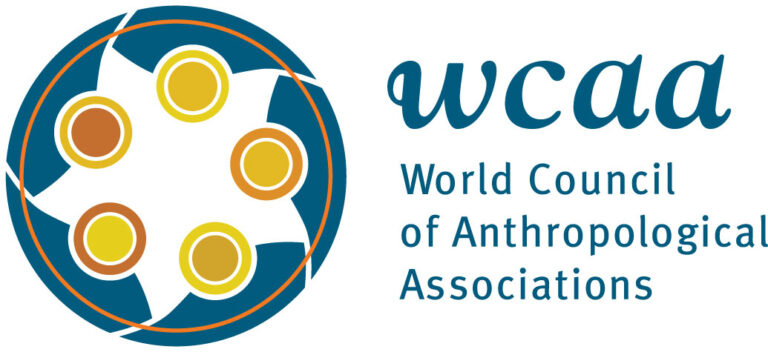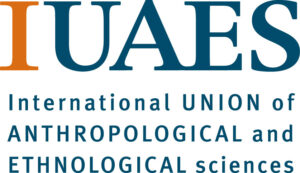Questions for Journal Editors for the Tenth Anniversary of Deja Lu
Journal: Antropologías del Sur. University of Academia Humanismo Cristiano, Chile. Editor: Claudio Espinoza, interviewed by Lía Ferrero, Translated from Spanish by Lía Ferrero
Dec. 27, 2021
Lía Ferrero: Tell me about the journal Antropologías del Sur.
Claudio Espinoza: Antropologías del Sur was born in 2014 under the wing of the School of Anthropology of the Universidad Academia Humanismo Cristiano. The project of the journal began in 2012 as part of a government program for the department, so to speak. As a candidate to run the department, I presented the proposal to create a departmental journal.
The idea was that the journal would be very departmental, that everyone would have a voice and vote, participation in the creation, etc., which sometimes implies difficulties, and I will tell this as a joke, I don’t know if it will be in the interview or not, but it took us a year to find the name of the journal.
That’s how the name came out and we created it and registered it in the property registry in the name of the University, which is what we thought was appropriate. From then on, we have been publishing the journal for seven years now, with two issues a year, winter semester in July and summer semester in December, and we have done quite well, better and better, and I say this because at the beginning it was difficult to get articles, so we relied on the enthusiasm of friends and colleagues who sent us articles. In fact the first issue we contacted people who wanted to write articles, which is not easy because they are all subject to pressures of metrics from their own universities, so we were fortunate to have that initial enthusiasm and the first issue of the journal was widely read. At the beginning one knows more or less what the topics of the articles may be, the profile of the journal, but there are a number of editorial issues that are learned along the way, that none of us who were there had any idea of.
It was a learning process because we really did it among the lecturers of the faculty. It was not that we had someone with knowledge of the editorial process or things like that; we were researching. We soon realized that we needed funding, so we had to apply for funds from the National Research Agency, which here was called CONICYT and now is called ANID, National Agency for Research and Development, and basically, in terms of format we promptly adhered, from the beginning, to what was stipulated by SciELO indexing. We tried to stick to those rules, types of evaluation, types of presentation of the information in the article, and we received more and more articles but not many, and a formula that we came up with to stimulate the submission of articles from colleagues from all over the world that we were interested in was the creation of thematic/special issues. So this awakened interest and allowed us to concentrate on certain topics and quickly we formed an academic committee with people who had a certain Latin American profile or from other parts of the Global South and I think they have been very good because they have disseminated the journal. Our colleagues and friends from Argentina, from Buenos Aires, have been very good because we have received many articles from Argentina and Mexico. In fact, at some point it was pointed out to us (by SCOPUS) that there were many articles from Argentina and Mexico but that more were missing from South America, so we have been overcoming this with time because it is not easy to get them. Slowly the range has been widening and indeed in the articles we have colleagues, authors from all over Latin America, which is what we have tried to emphasize.
Lía: Was that the objective when the journal was created, that articles would come from all over Latin America?
Claudio: Yes, exactly, yes.
Lia: And in what language do you publish?
Claudio: Spanish and Portuguese. And due to indexing issues, we have to make an abstract in English, but it is still a good idea because it allows us to make the journal known in other parts of the world, it is about being open to dialogue with colleagues from other places.
Lía: The journal is on an OJS (Open Journal Systems) platform, isn’t it?
Claudio: Yes, yes.
Lía: From the beginning?
Claudio: No, it wasn’t like that from the beginning, we were thinking of a printed journal. Now it seems like another century! I remember the discussions we had with our colleagues when we were in the process of creating the journal, someone said “No! It has to have a digital platform!” and then we launched the journal both in digital and printed format, and in the print edition we had a call for national artists who could send their works.
We had a lot of problems, I remember that the financial vice-rector at the time did not want us to have free access to articles. We had a huge argument. He said: “No! You have to charge. We are a poor university, we need resources… ” Well, it was a hard argument, nice but hard, let’s say, to tell him that we wanted to have free access. At one point I went to bookstores in Santiago, the capital of Chile, to sell the journal, which was then in print.
Over time we have had some budget cuts, but at some point they increased the budget, they recognized the work we were doing. We were basically working on our own; the previous editor Carmen Gloria Godoy and the current editor Paula Contreras and me, we worked together. Then the university hired us a proofreading person and we also had a layout artist. That financing of the layout artist ran out two years ago when they took away the possibility of printing. Two years ago the university entered an economic crisis; but we continued working with the layout artist, you can’t even imagine what we do to get the money for the salary to pay her fee for the job. We only uploaded PDFs to the OJS, and now that we have entered SciELO—we applied three years ago to SciELO and they took a long time to give us the answer, we don’t understand why—we have to have a programmer to upload the files to the SciELO platform in a different programming language, the XML format.
Lía: Who works in the journal? Who receive the articles, does the first reading, sends them to be evaluated, what team does the journal have to do those tasks?
Claudio: I do the bulk of the work with Paula Contreras, with the editor, the two of us and she more than me. She receives the articles, answers the mails, revises them, distributes them, etc., I am more her collaborator. I work with her but she has the bulk of the work and we rely as much as possible on colleagues of the University, which is the editorial team for some specific tasks: Paula designed a guideline and sends the guideline to colleagues in the faculty. When the article arrives, they review it, fill out the guideline and then we see who can it be evaluated by. It is not easy to find reviewers, especially in these last two years of the pandemic.
That slows down the editorial process a bit but in general we work quite fast; there are some articles with which there are problems, but in general, the process is quick. We use double-blind refereeing. Two peer-reviewers and in case of disparity a third evaluator is sought. We always try to start with referees who are most related to the subject, whether national or international, since we receive many articles from other countries; we try to have at least one of the reviewers from that country. There are times when you send the article to six evaluators and they do not answer or they answer late or they answer that they can’t or they answer yes, but then they do not send the evaluation. In general we have done well but we have had some articles that take a long time.
Lía: And all this process is done via the OJS platform?
Claudio: We are in transition, because it costs a little, we are adapting. The authors are now mostly using the OJS platform to send in articles, yes, but for the evaluators it is very difficult, so to facilitate the editorial process we send it to them by e-mail, when possible by OJS but not always.
Lía: And for reviewers, do you also send a form or something, an evaluation guide?
Claudio: Yes, yes, exactly. We send them three documents, the article, an evaluation guide and a third one where they give us their curriculum vitae, because sometimes there are less known evaluators, and that is very important to later submit the information to SciELO, to the indexing, to show that we have everything in order, for those who evaluated each issue and which articles they evaluated.
Lía: You said you applied to SCOPUS, right?
Claudio: Yes, we applied four or three years ago, I think, and they pointed out two elements that they saw critically, one was that we did not have too many articles from other countries in Latin America, which was our profile, and the second was that we lacked more citations of these articles in the index, in the Scopus directory. We will try again next year, after we publish the December issue that is coming out shortly.
Lía: What sections does the journal have?
Claudio: We have been removing some sections. Currently it has a section that is permanently open, which is to original articles. When there is a thematic issue, there is also a section of original articles, but it must be emphasized that these articles in thematic issues are also subject to double-blind evaluation. We have opened a section of essays, documents, interviews and translations; we have published some translations when we find them interesting, these are simply decided by the editorial committee of the faculty. We have an interview section that was intended to be more extensive but lately we have been reducing it to a series of interviews that we do with Paula and another colleague from the faculty, Luis Campos, and which is called Ciclo de Conversaciones Antropologías del Sur and whose objective is to reconstruct and revisit the history of the trajectory of anthropology in Chile based on its protagonists.
Lía: What is the average number of articles per issue?
Claudio: Per issue we receive over thirty submissions, and we publish between 10 and 15, I would say an average of 12 per issue.
Lía: Generally editorial work here (in Argentina) is not paid. Do you have any salary or is it something you do completely ad honorem?
Claudio: At the beginning it was a labor of love, but we have had for some time now, I would say about four years, we have a half salary, that is, 20 hours per month are assigned to the editor, in this case to Paula. We made an internal arrangement so with that we both dedicate ourselves to the journal. Yes, it is quite good because I have had knowledge of colleagues who are dedicated to journals and who do not receive any recognition whatsoever. And others that are doing very well because they have special editors at the university and layout artists and the entire infrastructure.
Lía: And when it comes to gaining academic credit, does the editorial work count?
Claudio: No, it is not like publications, which give you credit, the editorial work does not.
Lía: What would you say are the main problems that the journal faces for the future?
Claudio: in general I am very satisfied with the journal. I do think we should have more resources. Every issue I have to think a month in advance where to get the money to pay the layout artist, so I have to go inventing formulas to get money. I also feel that we need a greater recognition in terms of working hours, I consider that half a salary is not enough for the work we do.
I could also talk about the citation indexes but the truth is that this is the way the journal is. I think it is good that it is a niche where very well-known scholars publish, but also students, recent graduates who write an article on their thesis and send it; I think it is very nice, very gratifying. One could wish to be in Web of Science or Scopus, and if that were to happen, surely I would receive many more articles but you also have to enter into a logic of rejection of articles and that kind of thing; to be honest, at this moment I am not interested at all. I mean, it seems to me that the journal has managed to become a space for debate, for Latin American dialogue. Recently articles have started to arrive from the south of Europe, from Spain, from Granada, from African countries, so I find that very interesting, to consolidate a certain discussion around the topics we find interesting to discuss.
Lía: Is the journal mainly about social anthropology?
Claudio: Yes, yes, in general the social sciences but placing contemporary socio-cultural problems in the center, then it is mostly anthropological papers that we receive and some archaeological works we also have received also respond a little to this profile.
Lía: And you mentioned the citation indexes too, the journal is now in SciELO and is it in any other indexes?
Claudio: Yes, yes, we are in ERIH PLUS (European Reference Index for the Humanities). That was very good for us because when we got into that directory, the reception of articles increased a lot, and that is because CONICYT here recognizes it at the same level as Web of Science and Scopus to apply for research projects.
I am very much against the path taken by funding and research in Chile, which is of a terrible colonialism, I have been involved in project evaluations where we are 99% Chileans and two foreigners who speak Spanish and everything is done in English. I think it is horrendous, horrendous. As far as possible you have to try to resist those neoliberal formulas of production, and I think that in the journal, somehow we have been able to manage that, not completely because we need air to survive, but somewhat.



